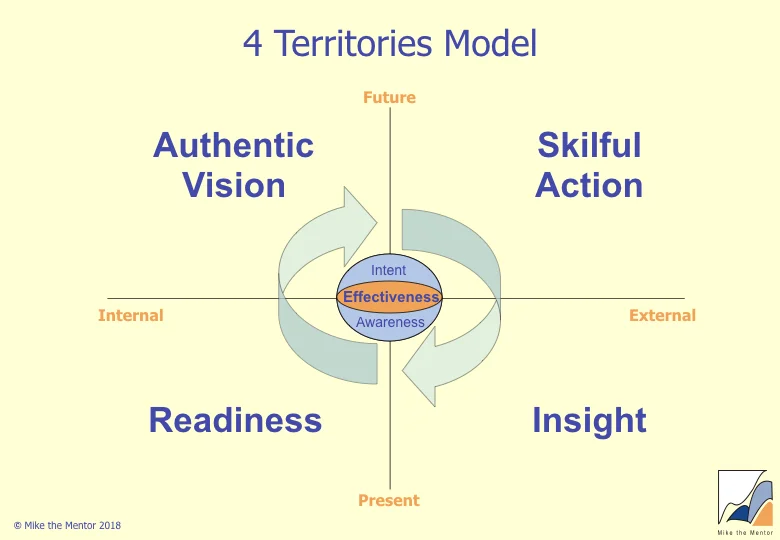Inspirational Leadership
/Some years ago, I had the pleasure of seeing my son Nick during his last year at school perform the "Once more into the breach, dear friends, once more" speech from Henry V. It reminded me of Richard Olivier's analysis of Henry's development as a leader in his book Inspirational Leadership: Henry V and the Muse of Fire - Timeless Insights from Shakespeare's Greatest Leader. Olivier provides a map of Henry's leadership journey (see diagram).
The journey starts with the young king having to gain commitment to his mission and assert his right to lead the army. He does so by demonstrating that he has left behind the riotous living of his Prince Hal days and that he has a compelling vision - to reunite England and France.
Henry then allocates his available resources and deals with those opposing him, including the three traitors who have been paid by the French to kill him. He tricks them into revealing themselves, vents his fury, and then dispassionately sentences them to death.
Landing in France, Henry achieves some early successes before setbacks lead to his 8,000 exhausted men being surrounded by 40,000 mounted French troops. The French offer Henry the choice of surrendering (and paying a huge fine but he and his troops being spared) or fighting the following day on the field of Agincourt and being killed.
Like so many leaders before and since, Henry faces his own dark night of the soul. He confronts the possibility of failure and the crushing loneliness of his responsibility as he faces a decision that could lead to most of his men lying dead on the field of battle and his vision destroyed.
Finally resolving to fight the French, he reaches deep inside to find an inspirational vision for a future worth fighting for and then addresses the troops:
And Crispin Crispian shall ne'er go by,
From this day to the ending of the world,
But we in it shall be remember'd;
We few, we happy few, we band of brothers;
For he today that sheds his blood with me
Shall be my brother; be he ne'er so vile,
This day shall gentle his condition:
And gentlemen in England now abed
Shall think themselves accursed they were not here,
And hold their manhoods cheap whiles any speaks
That fought with us upon Saint Crispin's day. (IV, iii)
As they listen, Henry's troops follow his imagination into the future, seeing themselves as old men in a pub toasting their mates - and looking back on a glorious struggle. Now they have something to fight for. Survival and honour. Outrageous odds become inspiring challenge. Henry glories in the inequality of numbers and binds his troops to him in a bond of brotherhood. A few hours later 10,000 French lie dead on the battlefield and only 25 English.
Whilst there may be more than a little poetic licence in Shakespeare's version of history, the play provides a compelling account of the highs and lows of leadership - and of how a leader's moments of greatness often come out of touching their darkest depths.

